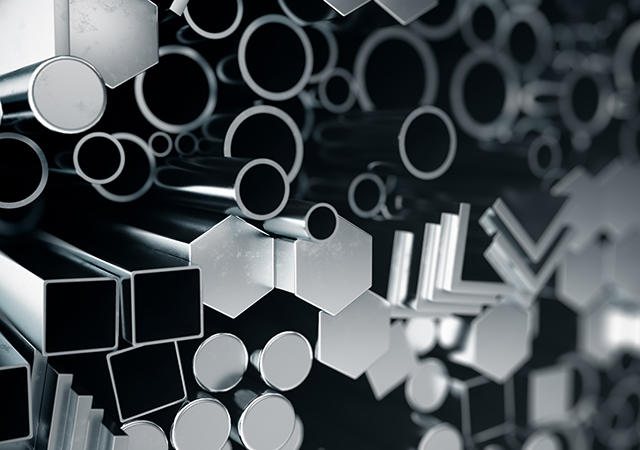
 Rost-9/Bigstock
Rost-9/Bigstock
The UAE steel market is experiencing significant developments in terms of capacity expansion, scrap consumption, and decarbonisation efforts. Key players in the industry, such as Arabian Gulf Steel Industries (AGSI) and Emirates Steel Arkan, are actively investing in increasing production capacity and adopting sustainable practices.
EXPANSION PLANS AND SCRAP CONSUMPTION
AGSI, a prominent UAE steel producer, aims to double its consumption of scrap by early 2025. The company plans to complete an expansion program by the second quarter of the following year, increasing its scrap consumption from the current 45,000-50,000 tonnes per month to around 60,000 tonnes per month, according to Fastmarkets, a price reporting agency.
Furthermore, AGSI has a design-stage plan to establish a new meltshop, which, once completed, is expected to consume approximately 100,000 tonnes per month of scrap. These expansion plans position AGSI as the single largest scrap buyer in the UAE, surpassing major steel producer Emirates Steel Arkan, which primarily consumes direct-reduced iron (DRI).
UAE SCRAP INTAKE AND CHALLENGES
As of 2022, the UAE had 7.72 million tonnes per year (tpy) of installed capacity for the production of long steel and 4.23 million tpy of semi-finished steel capacity. While the country produces its own steel billet, it also imports semi-finished steel from other nations in the Middle East-North Africa (MENA) region. However, the UAE faced challenges in the steel industry in 2023, with a decline in crude steel output and DRI production. Despite these challenges, the country's construction sector outlook remains positive, with anticipated year-on-year growth in value-added construction output, reveals Fastmarkets.
ANTICIPATED STEEL INDUSTRY GROWTH AND FUTURE INVESTMENTS
Industry experts expect more steel mills to be established in the UAE due to the country's favorable position to meet the demand for steel in mega-projects across the region. This potential for increased demand has prompted investments in steelmaking capacity and scrap buying in the UAE. The current consumption of steel scrap in the local market is expected to rise from 120,000 tonnes per month to approximately 150,000 tonnes per month by the second quarter of the following year, states Fastmarkets report.
GREEN HYDROGEN INITIATIVES AND DECARBONISATION EFFORTS
Masdar, the UAE's largest renewable energy company, and Emirates Steel Arkan have announced a pilot project to produce steel using green hydrogen as a power source. The project, set to commence in 2024, aims to extract iron from iron ore in the steel-making process using green hydrogen instead of natural gas. This initiative marks a significant step towards decarbonisation in the UAE's hard-to-abate steel sector and aligns with the global demand for green steel. The UAE aims to be a leader in decarbonising the global steel value chain and plans to become one of the world's largest hydrogen producers by 2031.
ESTABLISHMENT OF A SPECIALISED METAL ZONE
Under the auspices of the Umm Al Quwain Industrial City Authority (UICA), four prominent companies in the steel industry, CIM Steel Industry LLC, Rhino Steel, Metal Care Center Factory LLC, and Azis Steel, have joined forces to transform 1.4 million square feet of land into a specialised metal zone. This collaboration aims to magnify the collective impact of the companies by fostering mutual support andleveraging their individual strengths. The establishment of the specialised metal zone is expected to enhance Umm Al Quwain's manufacturing prowess and elevate the UAE's economic stature. It will also contribute to the country's status as a pioneer in producing high-quality Aluzinc coils in the Middle East.
PARTNERSHIP WITH BRAZIL'S VALE FOR LOW-CARBON STEEL PRODUCTION
AD Ports Group, the operator of industrial cities and free zones in the UAE, has signed a preliminary agreement with Brazil's mining industry major Vale to develop a mega hub in Abu Dhabi. The hub will cater to industrial complexes that produce low-carbon products for the steel industry. The agreement involves allocating land and related services from AD Ports Group's subsidiary, Kezad, for the mega hub. Additionally, an advanced handling facility will be developed and managed at Khalifa Port, capable of accommodating Valemax vessels with a handling capacity of up to 50 million tonnes of cargo annually. This partnership aims to meet the local and seaborne market demand for low-carbon steel products, reported The National News.
Overall, with these initiatives, the UAE is poised to further strengthen its position in the global steel industry and contribute to sustainable and innovative practices in the sector.
